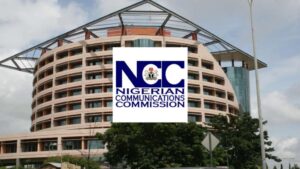
According to O.okri, “the exposé traced the economic malaise now afflicting the Ghanaian economy partly to the monopolistic policies of MTN, which had led to an unprecedented capital flight from that beleaguered West African nation.”
The expose‘ further averred thus: “Last year, Ghana was forced to label MTN a monopoly and slammed heavy fines of $773 million on them for damaging the Ghanaian business environment. MTN went to court, but in October, it was defeated at the Appeals Court, which ruled that the Ghanaian government was right in its classification of MTN.”
In Omokri’s documentary, titled ‘How MTN’s Monopoly Destroyed The Ghanaian Economy. And Nigeria Is Next!’, the renowned author, travelled to Ghana and interviewed government officials, chambers of commerce operatives, and labour union activists, as well as market women and ordinary Ghanaians.
According to the interview, “ordinary Ghanaians were observed lamenting the erosion of their personal economy, with a market woman saying, ‘All of us in this country now work for MTN’.”
“Labour leaders complained about MTN’s use of interconnectivity rates to stifle other telcos.
Omokri pointed out that “whereas all the large and medium-sized African nations where MTN is operating have struggling economies, the fastest growing large economies in Africa, such as Ethiopia and Tanzania, both with an average 6% GDP growth rates, do not have MTN operating in their countries. He opined, with data, that this could not be coincidental.”
“In the documentary, Kevin Ekow Taylor, one of the most prominent journalists in Ghana, had this to say about MTN’s monopolistic practices in Ghana:
“‘MTN is basically monopolising the system. They have taken advantage of the market too much. It is all because government upon government have given MTN too much room
“Every day, an estimated $2 million leaves the Ghanaian economy to South Africa, MTN’s home country. That is disastrous for a country with a GDP of less than $80 billion.”
Omokri also travelled to Kenya and interviewed a well-known Kenyan activist, Bishop Wycliffe Khaemba, who said as follows:
“The type of things that are happening in Nigeria and Ghana in the telecoms sector can’t happen in Kenya, because our government is alive to its responsibilities.”
He was referring to Kenya’s Information and Communications Act (Interconnection). This legislation is light years ahead of similar legislation in other African nations.
The Kenyan legislation specifically targets preventing a monopoly in the telecommunications industry by requiring “dominant providers to adhere to the principle of non-discrimination. A dominant interconnection provider is obligated to determine the interconnection charges based on objective criteria and to observe the principles of transparency and cost orientation. Failure to comply will result in the CA requesting the interconnection provider to adjust the charges or risk the imposition of a default interconnection charge by the CA.”
Omokri’s documentary, which has since gone viral, features a prominent U.S. Mayor, Mike Arnold, the elected mayor of Blanco, Texas, who urged Nigeria and Ghana to look inwards, rather than outward to foreign goods and services, especially in the telecommunications sector.
credit- Vanguard
You may be interested

2024 CHANQ: History Not Kind To Us Against Ghana –Ogunmodede
Webby - December 24, 2024Home-based Super Eagles coach Daniel Ogunmodede says history has not been good to Nigeria when they face rivals Ghana.The home-based…

Ex-Chelsea Star Oscar Returns To Boyhood Club Sao Paulo
Webby - December 24, 2024Former Chelsea midfielder Oscar is returning to his Brazilian boyhood club Sao Paulo after 14 years, which included a long…

‘I’m Incredibly Proud’– Arokodare Talks Up Genk’s Unbeaten Home Streak
Webby - December 23, 2024Tolu Arokodare is full of excitement followingGenk’s historic victory over Anderlecht, reports Completesports.com.Sunday’s win at the Cegeka Arena was the…






















![American Pastor, David Wilson Seen Eating The Box Of Woman Who Isn’t His Wife [Video]](https://onlinenigeria.com/wp-content/uploads/2019/10/american-pastor-david-wilson-seen-eating-the-box-of-woman-who-isnt-his-wife-video-150x150.jpg)








